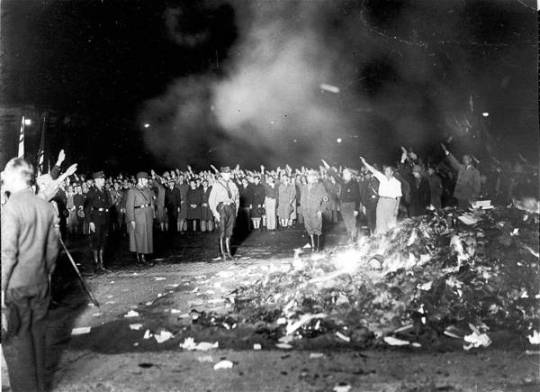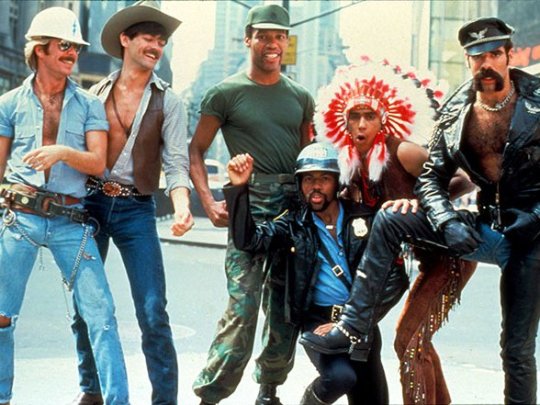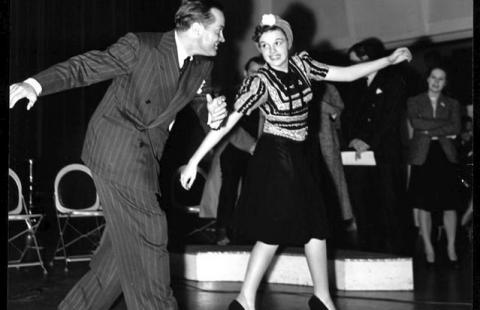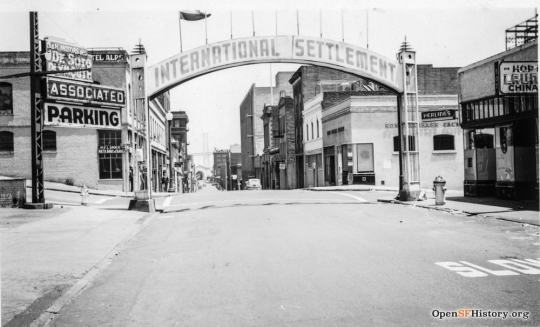#‘if an enemy government discovered your secret gay lover & threatened to expose it would you betray the US to keep it secret’
Note
wow very cool. as a european i am learning a lot about the us navy and defense and everything from your blog haha! idk if you've answered this before but what made you wanna work in defense?
Russia invading ukraine on my birthday lol. though i was always interested in military history/military fiction even as a kid. that was just the watershed moment for me personally
i don’t want to work IN defense though. I want to write ABOUT defense. still not sure what that looks like exactly for me. move to DC definitely. maybe get a position at one of the twenty trillion trade publications there are around here. Or comms job, govt job, journalism job… not sure. hopefully i will figure it out ! would love to write fiction for a living but im realistic enough to know that’s an oxymoron
(Also, side note, i am very flattered, & i know i say this somewhat often but i feel the need to repeat it every once in a while… please don’t take anything i say on this blog / ESPECIALLY in my writing as fact. i misrepresent stuff and get stuff wrong all the time, sometimes on purpose for story reasons. I try my best but i simply lack experience & worldview and have spent functionally zero time being an Adult or having to deal with Adult topics [still do not know what a 401k is!]. for instance if you even mention the words “security clearance” or “congressional confirmation hearing” in the general vicinity of my fics, the plot, nay, the entire CONCEPT, goes up in flames, as i discuss in this post. i really appreciate this comment don’t get me wrong But there are definitely better/more accurate places to learn about these topics than a 20y.o. A&D intern who is only just beginning their career & is still confused about many of the basics of real life. I have a lot of growing up still left to do & you really don’t have to listen to me)
#saying this only bc I myself am trying to learn from those better sources#the whole concept of ‘Guy who is closeted even from himself’ doesn’t work when a core part of his job is specifically being asked#‘if an enemy government discovered your secret gay lover & threatened to expose it would you betray the US to keep it secret’#no idea what ice as i have written him would respond tbh#and just that alone is enough to deny his clearance LOL he’s cooked#anyway—ugh don’t get me started on how conflicted i am about my career#as of posting this i have finished my first aerospace & defense internship/job#would do it again#freaking out about what that means for my own personal politics#w/e i have 2 years left of college. not gonna worry about this now.#I have a lot of growing up still left to do.#thanks for the ask anon i think i know who you are. <3 love you.#i could talk about my experience with the nyc ukrainian community for a week straight tbh#getting involved with them was genuinely life-altering stuff#compacflt has finally figured out how to internally link to previous posts on mobile: hallelujah
17 notes
·
View notes
Text
America’s Gay Men in WW2

World War Two was a “National Coming Out” for queer Americans.
I don’t think any other event in history changed the lives of so many of us since Rome became Christian.
For European queers the war brought tragedy.
The queer movement began in Germany in the 1860s when trans activist Karl Ulrichs spoke before the courts to repeal Anti-Sodomy laws. From his first act of bravery the movement grew and by the 1920s Berlin had more gay bars than Manhattan did in the 1980s. Magnus Hirschfeld’s “Scientific Humanitarian Committee” fought valiantly in politics for LGBT rights and performed the first gender affirmation surgeries. They were a century ahead of the rest of the world.
The Nazis made Hirschfeld - Socialist, Homosexual and Jew - public enemy number one.
The famous image of the Nazis burning books? Those were the books of the Scientific Humanitarian Committee. Case studies of the first openly queer Europeans, histories, diaries - the first treasure trove of our history was destroyed that day.

100,000 of us were charged with felonies. As many as 15,000 were sent to the camps, about 60% were murdered.
But in America the war brought liberation.
In a country where most people never even heard the word “homosexual” , historian John D’emilio wrote the war was “conducive both to the articulation of a homosexual identity and to the more rapid evolution of a gay subculture. (24)” The war years were “a Watershed (Eaklor 68)”
Now before we begin I need to give a caveat. The focus of this first post is not lesbians, transfolk or others in our community. Those stories have additional complexity the story of cisgender homosexual men does not. Starting with gay men lets me begin in the simplest way I can, in subsequent posts I’ll look at the rest of our community.
Twilight Aristocracy: Being Queer Before the War
I want us to go back in time and imagine the life of the typical queer American before the war. Odds are you lived on a farm and simply accepted the basic fact that you would marry and raise children as surely as you were born or would die. You would have never seen someone Out or Proud. If you did see your sexuality or gender in contrary ways you had no words to express it, odds are even your doctor had never heard the term “Homosexual. In your mind it was just a quirk, without a name or possible expression.
In the city the “Twilight Aristocracy” lived hidden, on the margins and exposed their queerness only in the most coded ways. Gay men “Dropping pins” with a handkerchief in a specific pocket. Butch women with key chains heavy enough to show she didn’t need a man to carry anything for her. A secret language of “Jockers” and “Nances” “Playing Checkers” during a night out. There is a really good article on the queer vernacular here
And these were “Lovers in a Dangerous Time.”
In public one must act as straight as possible. Two people of the same gender dancing could be prosecuted. Cross dressing, even with something as trivial as a woman wearing pants, would run afoul of obscenity laws.

The only spaces we had for ourselves were dive bars, run by organized crime. But even then one must be sure to be circumspect, and act straight. Anyone could be an undercover cop. If a gaze was held to long, or lovers kissed in a corner the bar would be raided. Police saw us as worthy candidates for abuse so beatings were common and the judge would do all he could to humiliate you.
Now Michael Foucault, the big swinging french dick of queer theory, laid out this whole theory about how the real policing in a society happens inside our heads. Ideas about sin, shame, normalcy, mental illness can all be made to control people, and the Twilight Aristocracy was no different.
While cruising a park at night, or settled on the sofa with a lifelong lover, the thoughts of Priests and Doctors haunted them. “Am I living in Sin? Am I someone God could love?” “Is this healthy? Have I gone mad? Is this a true love or a medical condition which requires cure?”
There was no voice in America yet healing our self doubt, or demanding the world accept us as we are. And that voice, the socialist Harry Hay, did not come during the war, but it would come shortly after directly because of it.
Johnny Get Your Gun… And are you now or ever been a Homosexual?
For the first time in their lives millions of young men crossed thousands of miles from their home to the front.
But before they made that brave journey they had another, unexpected and often torturous journey. The one across the doctor’s office at a recruiting station.
In the nineteenth century queerness moved from an act, “Forgive me Father I have sinned, I kissed another man” to something you are, “The homosexual subspecies can be identified by certain physical and psychological signs.”
These were the glory days of patriarchy and white supremacy, those who transgressed the line between masculine and feminine called the whole culture into question. So doctors obsessed themselves with queerness, its origins, its signs, its so called catastrophic racial consequences and its cure.
“Are you a homosexual?” doctors asked stunned recruits.
If you were closeted but patriotic, you would of course deny the accusation. But the doctor would continue his examination by checking if you were a “Real Man.”
“Do you have a girlfriend? Did you like playing sports as a kid?”
If you passed that, the doctor would often try and trip you up by asking about your culture.
“Do you ever go basketeering?” he would ask, remembering to check if there was any lisp or effeminacy in your voice.
Finally if the doctor felt like it he could examine your body to see if you were a member of the homosexual subspecies.
Your gag reflex would be tested with a tongue depressor. Another hole could be carefully examined as well.
Humiliating enough for a straight man. But for a gay recruit the consequences could be life threatening.
Medical authorities knew homosexuals were weak, criminal and mad. To place them among the troops would weaken unit cohesion at the very least, result in treachery at the worst. In civilian life doctors had much the same thing to say.
The recruit needed a cure. And a doctor was always ready. With talk therapy, hypnosis, drugs, electroshock and forced surgeries of the worst kinds there was always a cure ready at hand.
Thankfully the doctors were not successful in their task, one doctor wrote “for every homosexual who was referred or came to the Medical Department, there were five or ten who never were detected. (d’Emilio 25)”
Here’s the irony though, by asking such pointed and direct questions to people closeted to themselves it forced them to confront their sexuality for the first time.
Hegarty writes, “As a result of the screening policies, homosexuality became part of wartime discourse. Questions about homosexual desire and behavior ensured that every man inducted into the armed forces had to confront the possibility of homosexual feelings or experiences. This was a kind of massive public education about homosexuality. Despite—and be-cause of—the attempts to eliminate homosexuals from the military, men with same-sex desires learned that there were many people like themselves (Hegarty 180)”
And then it gave them a golden opportunity to have fun.
The 101st Airborn - Homosocial and Homosexual
“Homosocial” refers to a gender segregated space. And they were often havens for gay men. The YMCA for example really was a place for young gay men to meet.

Now the government was already aware of the kind of scandalous sexual behaviour young men can get up to when left to themselves. Two major government programs before the war, the Federal Transient Program and the Civilian Conservation Corps focused on unattached young men, but over time these spaces became highly suspect and the focus shifted to helping family men so as to avoid giving government aid to ‘sexual perversion’ in these homosocial spaces.
But with the war on there was no choice but to put hundreds of thousands of young men in their own world. All male boot camps, all male bases, all male front lines.
The emotional intensity broke down the barriers between men and the strict enforcement of gendered norms.
On the front the men had no girlfriend, wife or mother to confide in. The soldier’s body was strong and heroic but also fragile. Straight men held each other in foxholes and shared their emotional vulnerability to each other. Gender lines began to blur as straight men danced together in bars an action that would result in arrest in many American cities.
Bronski writes, “Men were now more able to be emotional, express their feelings, and even cry. The stereotypical “strong, silent type,” quintessentially heterosexual, that had characterized the American Man had been replaced with a new, sensitive man who had many of the qualities of the homosexual male. (Bronski 152)”
Homosexual men discovered in this environment new freedoms to get close to one another without arousing suspicion.
“Though the military officially maintained an anti-homosexual stance, wartime conditions nonetheless offered a protective covering that facilitated interaction among gay men (d’Emilio 26)”
Bob Ruffing, a chief petty officer in the Navy described this freedom as follows, ‘When I first got into the navy—in the recreation hall, for instance— there’d be eye contact, and pretty soon you’d get to know one or two people and kept branching out. All of a sudden you had a vast network of friends, usually through this eye contact thing, some through outright cruising. They could get away with it in that atmosphere. (d’Emilio 26) ”
Another wrote about their experience serving in the navy in San Diego, “‘Oh, these are more my kind of people.’ We became very chummy, quite close, very fraternal, very protective of each other. (Hegarty 180)”
Some spaces within the army became queer as well. The USO put on shows for soldiers, and since they could not find women to play parts, the men often dressed in drag. “impersonation. For actors and audiences, these performances were a needed relief from the stress of war. For men who identified as homosexual, these shows were a place where they could, in coded terms, express their sexual desires, be visible, and build a community. (Bronski 148)”

“Here you see three lovely “girls”
With their plastic shapes and curls.
Isn’t it campy? Isn’t it campy?
We’ve got glamour and that’s no lie;
Can’t you tell when we swish by?
Isn’t it campy? Isn’t it campy?”
The words camp and swish being used in the gay subculture and connected to effeminate gay men.
I would have to assume, more than a few transwomen gravitated to these spaces as well.
Even the battlefield itself provided opportunities for gay fraternization. A beach in Guam for example became a secret just for the gay troops, they called it Purple Beach Number 2, after a perfume brand.
This homoerotic space was not confined to the military, but spilled out into civilian life as well.
Donald Vining was a pacifist who stated bluntly his homosexuality to the recruitment board as his mother needed his work earnings, and if you wanted be a conscientious objector you had to apply to go to an objector’s camp. He became something of a soldier chaser, working in the local YMCA and volunteering at the soldier’s canteen in New York he hooked up with soldiers still closeted for a night of passion but many more who were open about who they were.
After the war he was left with a network of gay friends and a strong sense of belonging to a community. It was dangerous tho, he was victim of robberies he could not report because they happened during hook ups, but police were always ready to raid gay bars when they were bored. “It was obvious that [the police] just had to make a few arrests to look busy,” he protested in his diary. “It was a travesty of justice and the workings of the police department (d’Emilio 30).״
Now it might seem odd he was able to plug into a community like that, but over the war underground gay bars appeared across the country for their new clientele. Even the isolated Worcester Mass got a gay bar.
African American men, barred from combat on the front lines, were not entirely barred from the gay subculture in the cities. For example in Harlem the jazz bar Lucky Rendevous was reported in Ebony as whites and blacks “steeped in the swish jargon of its many lavender costumers. (Bronski 149)”
The Other War: Facing Homophobia
“For homosexual soldiers, induction into the military forced a sudden confrontation with their sexuality that highlighted the stigma attached to it and kept it a matter of special concern (d’Emilio 25)”
“They were fighting two wars: one for America, democracy, and freedom; the other for their own survival as homosexuals within the military organization. (Eaklor 68)”
Once they were in, they fell under Article 125 of the Uniform Code of Military Justice: “Any person subject to this chapter who engages in unnatural carnal copulation with another person of the same or opposite sex or with an animal is guilty of sodomy. Penetration, however slight, is sufficient to complete the offense.”
Penalties could include five years hard labour, forced institutionalization or fall under the dreaded Section 8 discharge, a stamp of mental instability that would prevent you from finding meaningful employment in civilian life.
Even if one wanted nothing to do with fulfilling their desires it was still essential to become hyper aware of your presentation and behaviour in order to avoid suspicion.
Coming Home to Gay Ghettos
“The veterans of World War II were the first generation of gay men and women to experience such rapid, dramatic, and widespread changes in their lives as homosexuals. Bronski 154”
After the war many queer servicemen went on to live conventionally heterosexual lives. But many more returned to a much queerer life stateside.
Bob Ruffing would settle down in San Francisco. The city has always been a safe harbour for queer Americans, made more so as ex servicemen gravitated to its liberated atmosphere. The port cities of New York, San Francisco and Los Angeles became the prime destinations to settle. Vining’s partner joined him in New York, where they both immersed themselves in the gay culture.

Other soldiers moved to specific neighborhoods known for having small gay communities. San Francisco’s North Beach, the west side of Boston’s Beacon Hill, or New York’s Greenwich Village. Following the war the gay populations of these cities increased dramatically.
The cities offered parks, coffee houses and bars which became queer spaces. And drag performance, music and comedy became features of this culture.
These veterans also founded organizations just for the queer soldiers. In Los Angeles the Knights of the Clock provided a space for same sex inter racial couples. In New York the Veterans Benevolent Association would often see 400-500 homosexuals appear at its events.
A number of books bluntly explored homosexuality following the war, such as The Invisible Glass which tells the story of an inter racial couple in Italy,
“With a slight moan Chick rolled onto his left side, toward the Lieutenant. His finger sought those of the officer’s as they entwined their legs. Their faces met. The breaths, smelling sweet from wine, came in heavy drawn sighs. La Cava grasped the soldier by his waist and drew him tightly to his body. His mouth pressed down until he felt Chick’s lips part. For a moment they lay quietly, holding one another with strained arms.”
Others like Gore Vidal’s The City and the Pillar (1948), Fritz Peters’s The World Next Door (1949), and James Barr’s Quatrefoil (1950) explored similar themes.
In 1948 the Kinsey Report would create a public firestorm by arguing that homosexuality is shockingly common. In 1950 The Mattachine Society, a secretive group of homosexual Stalinists launched America’s LGBT movement.
References:
Michael Bronski “A Queer History of the United States”
John D’emilio “Coming Out Under Fire”
Vivki L Eaklor “Queer America: A GLBT History of America”
~~~~~~~~~~~~~~~~~~~~~~~~~~~~~~~~~~~~~~~~~~~~~~~~~
The Lesbians
In 1947 General Eisenhower told a purple heart winning Sargeant Johhnie Phelps, “It's come to my attention that there are lesbians in the WACs, we need to ferret them out”.
Phelps replied, “"If the General pleases, sir, I'll be happy to do that, but the first name on the list will be mine."
Eisenhower’s secretary added “"If the General pleases, sir, my name will be first and hers will be second."
Join me again May 17 to hear the story of America’s Lesbians during the war.
21 notes
·
View notes